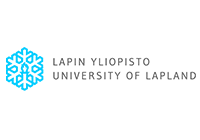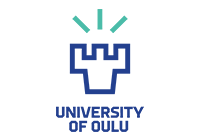Coming soon: another season of FinEd Online Research Talks (FORT), covering current topics in educational sciences and showcasing the varied research conducted in FinEd’s member universities. The FORT events are targeted particularly for PhD researchers, but other members of the scientific community, as well as all other interested parties, are also warmly welcome. Participation is free, details of the talks below!
10.2.2023 (Friday), from 10-11 o’clock:
Relationships between children’s early numeracy, physical activity and motor skills learning, Professor (Special Education) Pirjo Aunio (University of Helsinki)
My talk focuses on the latest research findings in my group about young children’s early numeracy learning and possible learning difficulties in it. We aim to produce new scientific evidence about developmental dynamics in early numeracy, executive functions, motor skills and physical activity. The study line started with an observation that children’s physical activity, motor skills and the knowledge of mathematical skills have been decreasing during the last decade. Is it so that an inactive lifestyle causes problems for learning? So far we have collected longitudinal data from three measurement points, approximately 300 children aged 3-6 years. We have also used the interventions to manipulate the developmental trajectories. In my FinEd talk, I will present our new results. I will also discuss about challenges to conduct longitudinal and intervention studies with preschoolers.
Link to Prof. Aunio’s talk, Meeting ID: 684 2273 6018
15.3.2023 (Wednesday), from 13-14 o’clock:
The significance of socioeconomic background for the educational dispositions and aspirations of Finnish comprehensive school leavers, Professor Tero Järvinen (University of Turku)
In the Bildung review by the Finnish Ministry of Education and Culture published in January 2023, the concern is raised about the increase of educational inequalities related to the socioeconomic background of children and young people. Differences between socioeconomic groups can be seen in students’ school performance and learning results as well as in their selection into different educational pathways after comprehensive school. According to research, even students from different socioeconomic backgrounds with equal school success will end up on different educational paths. This lecture examines the significance of socioeconomic background for students’ educational dispositions and aspirations. By drawing on a study of 15-year old lower secondary school students (N=1.058) in Turku sub-region, the lecture aims to answer the following questions: what is the effect, if any, of the socioeconomic background of Finnish comprehensive school leavers on their educational dispositions and aspirations, and how does the relationship change when controlling for the effects of individual ability and gender? If it turns out that many gifted students from low-socioeconomic backgrounds who have positive educational dispositions ‘voluntarily’ give up achieving higher levels of education, it means that many occupational fields will lose potentially talented and skilful employees. It also means that Finnish education system is not able to encourage and support students to set themselves educational goals that differ from their family tradition. By not succeeding in this, the system functions towards the social inheritance of education and reproduction of the social divisions and hierarchies of a society.
Link to Prof. Järvinen’s talk, Meeting ID: 679 5989 6948
20.4.2023 (Thursday), from 12-13 o’clock:
Decentering the adult and problematising the production of child in education, Professor Maija Lanas (University of Oulu)
The lecture discusses critically the position of a child in education. In sociologically based childhood studies, youth studies, and also in educational philosophy, the position of a child has been critically discussed and theorised for some decades now. However, these discussions have not made their way to the majority of educational practice and empirical research about education. The lecture argues that the normalised position of a child in education is ethically problematic, and showcases why.
Link to Prof. Lanas’ talk, Meeting ID: 668 6173 9737









